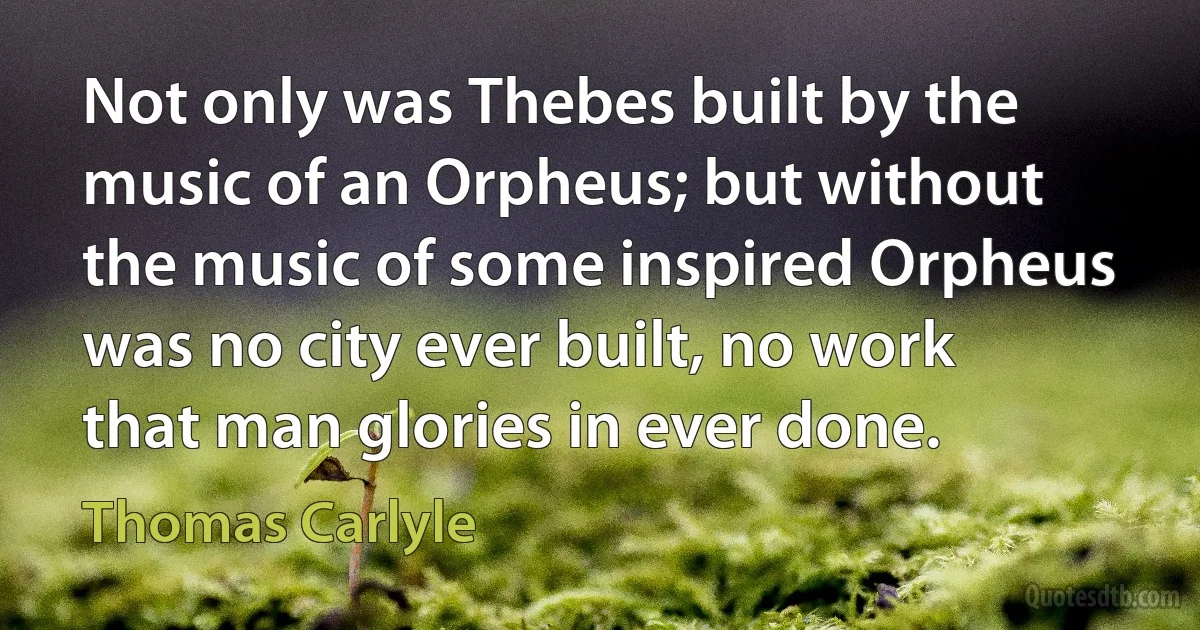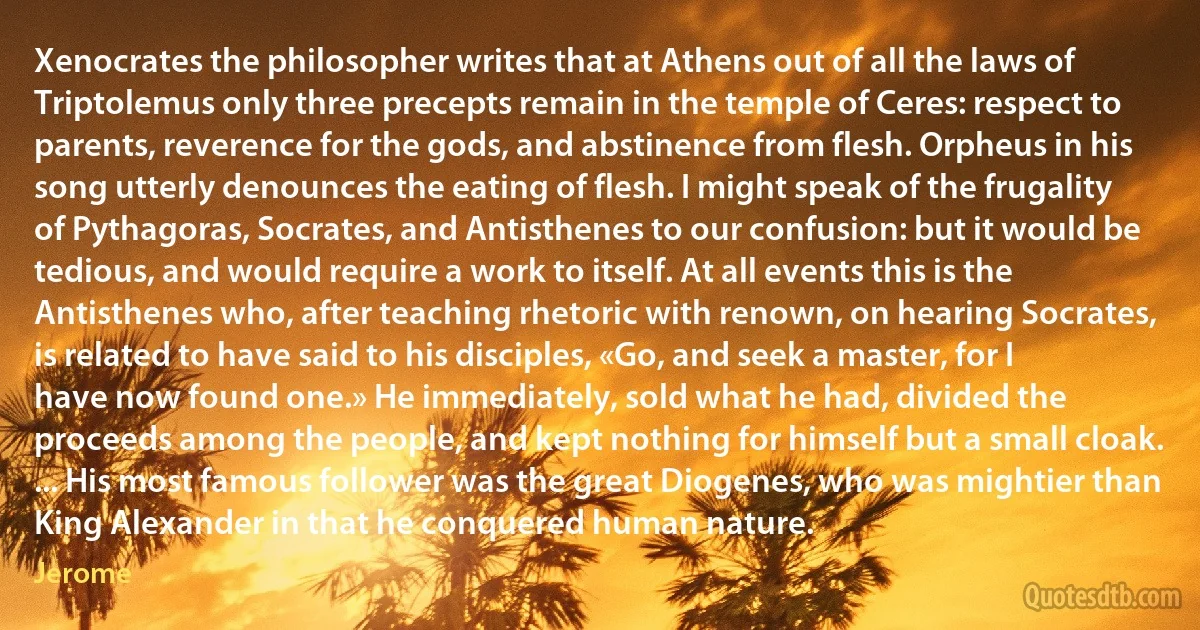Orpheus Quotes
Particularly in the case of all professional of press-images which testify of the real events. In making reality, even the most violent, emerge to the visible, it makes the real substance disappear. It is like the Myth of Eurydice : when Orpheus turns around to look at her, she vanishes and returns to hell. That is why, the more exponential the marketing of images is growing the more fantastically grows the indifference towards the real world. Finally, the real world becomes a useless function, a collection of phantom shapes and ghost events. We are not far from the silhouettes on the walls of the cave of Plato.

Jean Baudrillard
I shall detain you no longer in the demonstration of what we should not do, but straight conduct ye to a hillside, where I will point ye out the right path of a virtuous and noble education; laborious indeed at the first ascent, but else so smooth, so green, so full of goodly prospect and melodious sounds on every side that the harp of Orpheus was not more charming.

John Milton
We learn from Plutarch, that this was the theme of one of the hymns of Orpheus, so celebrated in the fabulous ages of Greece. It was brought by him from the banks of the Nile; and we even find in his verses, as in the Indian systems, a definite period assigned for the duration of each successive world. The returns of great catastrophes were determined by the period of the Annus Magnus, or great year, a cycle composed of the revolutions of the sun, moon, and planets, and terminating when these return together to the same sign whence they were supposed at some remote epoch to have set out. The duration of this great cycle was variously estimated. According to Orpheus, it was 120,000 years; according to others, 300,000 and by Cassander it was taken to be 300,000 years.

Charles Lyell
The way the anima initially manifests in an individual man usually bears the stamp of his mother's character. If he experienced her in a negative way, then his anima often takes the form of depressive moods, irritability, perpetual malcontent, and excessive sensitivity. If the man is able to overcome these, precisely these things can strengthen his manliness. Such a negative mother anima will endlessly whisper within a man: "I'm a nothing," "It doesn't make sense anyhow," "It's different for other people," "Nothing * gives me any pleasure," and so on. Continual fear of disease, impotence, or accidents are her work, and she constellates a general sense of gloom. Troubled moods like these can intensify to the point of temptations to suicide; thus the anima can become a demoness of death. She appears in this role in Cocteau's film Orpheus.

Marie-Louise von Franz
The sculptors of the cathedral porches of the Middle Ages already knew that we can identify many legendary figures by their attributes, not their physical appearance. How is one to recognize Orpheus without his lyre, or Saint Lawrence without his grid? At the same time it seems a bit absurd, In an art that claims to be realistic, to have Orpheus always carrying his lyre, like a German businessman his briefcase. There must have been moments when Orpheus and Saint Lawrence left their lyre or their grid at the checkroom, for instance.. [c. 1960, in France].

Ossip Zadkine
At first, I thought I had found in this second figure [a bronze Orpheus, Zadkine made shortly after his return from New York to Paris, in 1944] the perfect solution, but a surprise awaited me. One day my coal merchant delivered to me, here in my studio, some wood for heating; among these logs I found a rudimentary but completely mysterious wooden figure of a man. He seemed to be walking in great strides, his torso suggested by only two simple boards which, in their structure, were very much like an ancient lyre. I immediately began working on a new 'Orpheus', in which the [music-]instrument had truly become part of the man.

Ossip Zadkine
Be not, O Greeks, so very hostilely disposed towards the Barbarians. To the Babylonians you owe astronomy; to the Persians, magic; to the Egyptians, geometry; to the Phoeicians, instruction by alphabetic writing. Cease, then, to miscall these imitations inventions of your own. Orpheus, again, taught you poetry and song; from him, too, you learned the mysteries.

Tatian
...his book, Orpheus, or the Way to a Death Mask, of which he had said that he regretted not having written it as a poem.
And with dream-awakened eyes she saw all the beauty around her, saw the sea, felt the sun, and knew: she had to vanish for a while from the human plane and make every sacrifice in order to create her world anew out of the depths.

Charlotte Salomon
!-- His whinny was sweeter
Than Orpheus' lyre.
The wing on his shoulder
Was brighter than fire. --> His tail was a fountain.
His nostrils were caves.
His mane and his forelock
Were musical waves.
He neighed like a trumpet.
He cooed like a dove.
He was stronger than terror
And swifter than love.

Eleanor Farjeon
Orpheus with his lute made trees, And the mountain tops that freeze, Bow themselves, when he did sing To his music, plants and flowers Ever sprung as sun and showers There had made a lasting spring. Every thing that heard him play, Even the billows of the sea, Hung their heads, and then lay by. In sweet music is such art, Killing care and grief of heart Fall asleep, or hearing, die.

William Shakespeare



